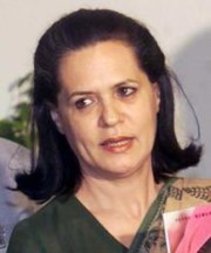India’s PM offers to be questioned in scandal
India’s prime minister offered Monday to be questioned by a parliamentary committee to prove his innocence in a telecommunications scandal that has shaken the government and reportedly cost the country billions.
The Public Account Committee, headed by an opposition leader, is examining a report by India’s auditor general that says the government lost as much as $36 billion in potential revenue during its 2008 sale of second-generation, or 2G, cellular licenses.
“I sincerely believe that, like Caesar’s wife, the prime minister should be above suspicion. I am prepared to appear before the committee, even though there is no precedent to that effect,” Prime Minister Manmohan Singh told a meeting of his governing Congress party.
The issue overshadowed the two-day party conclave, which was scheduled to conclude later Monday on the outskirts of New Delhi.
On Sunday, the party chairwoman, Sonia Gandhi, defended Singh, saying “the party stands solidly with him.”
Sonia Ghandi was named on the Forbes List of 10 Powerful People in the World! She is fascinating and I hope that one day Myra Nair will produce a movie about her life!
SOURCE


You look pretty good.